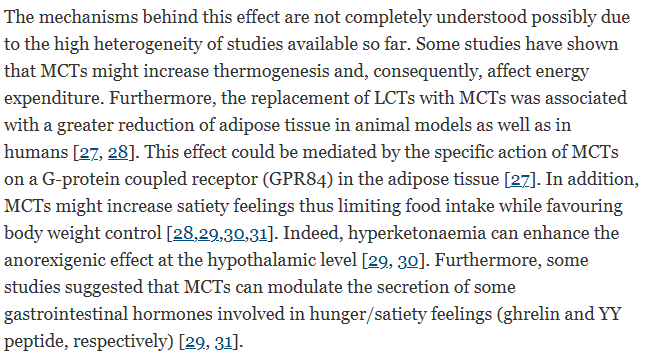Here’s a study showing what I think are dramatic benefits from taking MCTs (medium chain triglycerides, think coconut oil but better):
There were three groups, all on a very low calorie keto diet (VLCKD), 800 cals/day. One control group, two with added MCTs.
These are the MCTs they were taking:
https://www.kanso.com/en/p/oil-mct-100
Remarkably silent on what this stuff is. Although this is probably similar:
I seem to remember thinking that all “C8” (the type of fat) was better, but double the price:
I may have to add some of this to my daily routine for a while, to see what happens. (I remember that you have to start slow…otherwise you could end up the bathroom.)


 )
)